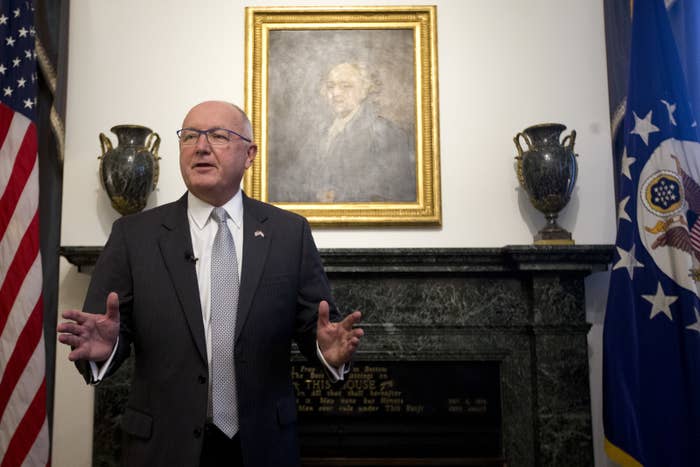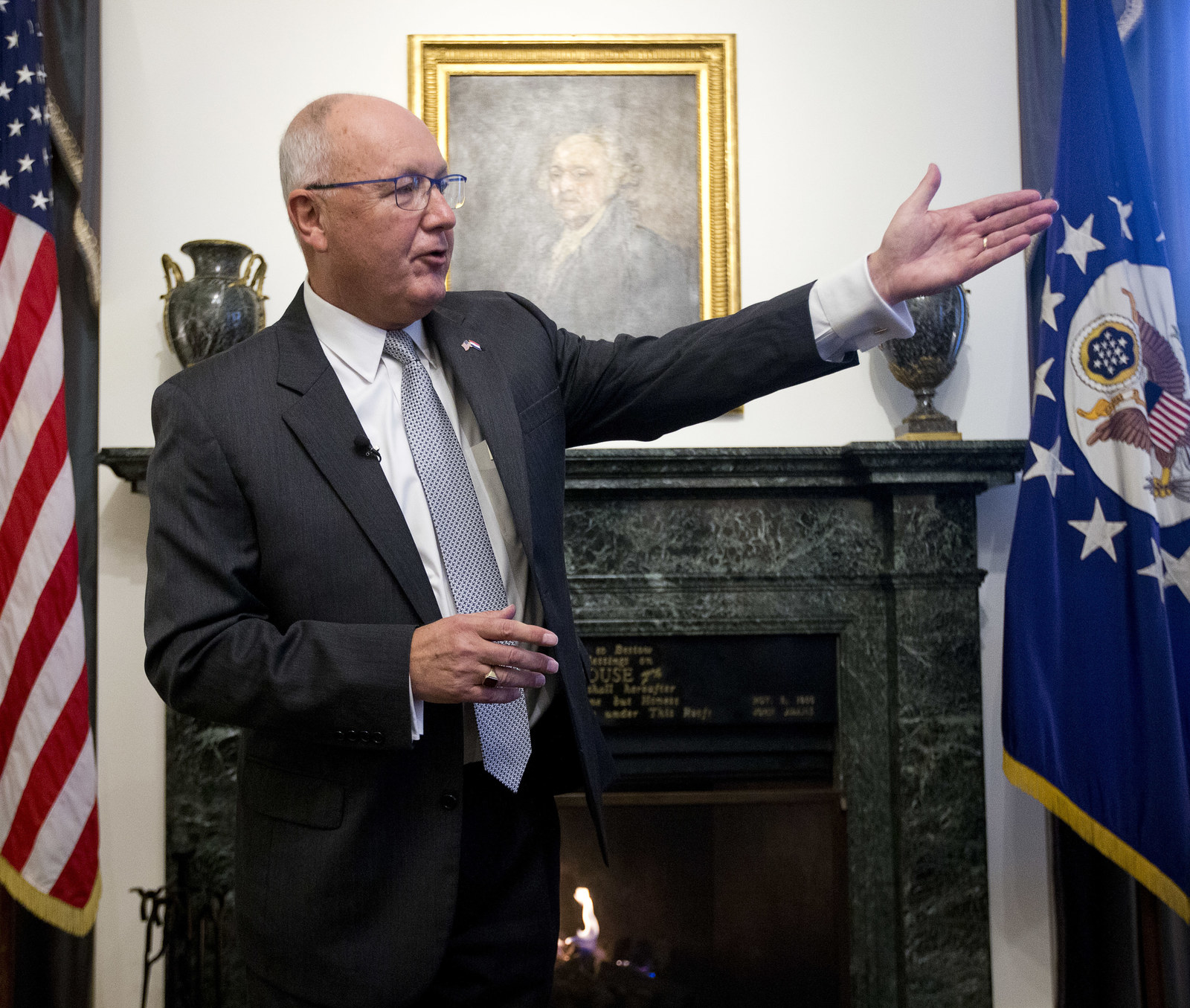US Ambassador to the Netherlands Pete Hoekstra, appointed by President Donald Trump and sworn in by Vice President Mike Pence in December, has spent the first month in his new job disputing anti-Muslim comments he made in 2015.

Three weeks ago, a Dutch journalist quizzed Hoekstra about his declaration in 2015 that the Netherlands has "no-go zones" and "politicians are being burned" there, linking this to a rise in Islamic immigration. Hoekstra denied saying it — despite video of his comments — calling the report "fake news." (He then even claimed he didn't just say "fake news.")
@Nieuwsuur to new US ambassador: "You mentioned [..] that there are no go-zones in the Netherlands and that cars an… https://t.co/HdsIWZVnMI
Many anti-Muslim activists have helped spread a false conspiracy theory that there are "no-go zones" in Europe (a theory which first took hold in Sweden in 2014), describing lawless areas which the government no longer controls and where Sharia, or Islamic law, is forced upon locals.
During a very awkward press conference on Wednesday after he arrived in the Netherlands, Hoekstra refused to comment on his "no-go zones" statement, declaring: "I am not revisiting the issue."
View this video on YouTube
Multiple journalists quizzed him, including Roel Geeraedts, with Dutch channel RTL Nieuws, who asked: "If you’re truly an honest and wise man, could you please take back the remark about burned politicians or name the politician that was burned in the Netherlands?”

But in an interview with Dutch newspaper De Telegraaf published on Friday, Hoekstra finally admitted that his 2015 statement had been "just wrong."
He said he mixed up the Netherlands with another country (although he did not specify which).
"While you know there have been other issues in other countries in Europe, you know that has never been the circumstances here. That was a wrong statement. That was just wrong," he said.
"How often does a person have to say that he regrets something?" asked Hoekstra.

